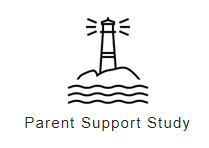Helping Children Cope with Grief
Helping children cope with grief is very important when they have lost someone, as it is hard for them to understand what has happened, and all too often, we try to shelter them from death, which can make things worse.
It is a reality
that children, like the rest of us, will often have to deal with the
death of a family member or friend. The grief of losing a pet can also be a
huge experience for a child.
Children dealing with grief find it difficult to express how they feel and it is also a problem knowing how they are coping with their loss. For this reason, children are sometimes referred to as the “forgotten grievers”.
Talking to Children about Grief
It is important to talk freely to children about what has happened, about why their friend, sibling or parent or grandparent are no longer present. It is good to let them be involved with choosing flowers or reading a poem at the funeral.
They should be warned that they will feel lots of emotions, and told that it is OK to feel sad for their loss and that it's OK to cry. It is difficult to know how to start talking about grief to the children, but it is the adult’s job to get the conversation started. If you find it hard to start the conversation, imagine how much more difficult it is for a child to know what to say.
You could start with “I’m so sorry this has happened. Are there any questions you want to ask about granddad” for example. Don’t force the issue if they obviously don’t want to talk about it. Try again later. They will let you know if they can’t face it yet by changing the subject or leaving the room. Gently try again another time.

What Not to Say to Children about Death
Do not say the person has just gone away or that they have gone to heaven. Many children might be waiting for years expecting the person to come back and wondering what they have done wrong that they went away. You need to make sure children understand that death means they will not be coming back. They might have experienced this with a pet, a goldfish or a hamster, a cat or a dog, and this will help them to understand. Similarly do not use expressions such as “gone to sleep”, as children are literal and will expect the deceased to wake up.
Young children’s questions will tend to be very literal, such as:
- Where is the body?
- Can they still eat or talk.?
- What happens to the body?
- Why does it get buried?
Explain as gently as possible that they won’t be coming back, but the person who has died will always love them.
Try to be as positive as possible. Don’t voice such feelings as “I will never get over this loss” or “I am all alone” within their earshot. They will pick up on how you are coping with your grief and mimic your behaviour. If you show them you are managing then they will manage too. Above all, make them part of the grieving process. Don’t try to hide the death from them.
It can be very useful for a child to have an object that belonged to the person who died. It can be a focus for their grief, and a way of keeping the memory alive. Let them have a photograph, or choose something from the deceased’s possessions that had meaning for them. It will be something they can treasure and which will keep the happy memories close for them.
How to Talk to Children about Death
Tell them that you are always there to support them. Emphasize to the children that they will be fine. That other family members love the children, and will all be there to help and care for them. Reinforce this as much as possible.
Don’t avoid talking about the loss. Bring up the deceased loved one in normal conversation. Talk openly and freely about them. Let the children voice their thoughts and feelings about the loss as much as possible. Whenever they bring up the loss, discuss it, don’t change the subject.
Let them cry. Don’t say “Stop crying”, tell them:
“a good cry is worth a five pound note – you feel so much better afterwards.”
But if they are crying all the time, or if a child becomes very quiet and introverted, or if their behaviour becomes aggressive and noisy, it may be a sign that they need help to cope with their grief.
Read more in our article 'Talking to Children about Death'
Children's Grief and Guilt
Make sure that they know IT IS NOT THEIR FAULT. Many children will find a reason for the death that makes sense to them, and often they blame themselves. “If I had been a better behaved child perhaps it would not have happened.” They may also get very anxious about whether other people, parents or family members will die. Make sure they have the opportunity to voice any fears so that they can be reassured.
For USA Residents:
Please help our colleagues at Memorial Sloan Kettering Cancer Center, St. Jude Children’s Research Hospital, and Children’s Hospital of Philadelphia, USA by joining in their research study:
SUPPORT FOR BEREAVED PARENTS

Losing a child to cancer is devastating, and there is a critical need to develop effective supports.
A federally-funded study in the United States (US) evaluating different types of support for bereaved parents is currently seeking participants. Parents residing in the US may be eligible if they lost a child diagnosed with cancer at least 6 months ago and live in one of the following states: NY, NJ, PA, CT, FL, or TN (other eligible states are being added, please complete the survey to check with us).
To find out if you may be eligible, please click here, visit our website at bereavedparentsupportstudy.com, or email us at parentstudy@mskcc.org.
Death of Parents of Young Children
The death of parents of young children often seems to be the hardest for us to bear. When parent death happens, there is often a young father or a young mother left with a baby and or a toddler to care for.
You may be a young father left with a few months old baby and a toddler to care for when your wife dies of cancer. Or a young mother whose husband dies and is left with young children to bring up alone. As well as taking on the full responsibility for the day to day care of the children, there are enormous financial pressures as well, as the single parent has to support their family both practically and financially.
However, amazingly, the organisation required, the routines of young childrens' feeding times and needs can be the thing that keeps young bereaved parents going. The day to day activities that have to go on keep the mind focused and busy. The reality that life has to go on kicks in.
If the tragedy involves the death of both parents, then it could be grandparents or the extended family who have to cope, and the advice on these pages should be useful for them too.
Change of Home or School after the Death of a Parent
In some cases, when young children lose one or both parents, it may mean the loss of their whole lifestyle. The children may move on to different guardians and schools. Even if only one parent dies, there may be loss of income which means moving house and/or school. These children need caring homes and lots of attention and support. Hopefully by other family members familiar to them.
If children have to move home or school this can be a huge challenge for them. The staff at the school should be informed and if there is a school counsellor or welfare officer they could be supportive. A buddy system is also a good option so that the child knows who to go to with issues.
If the parent has moved to be near old family due to the loss of partner, the extended family can be a great support. The child may have familiar cousins to play with which will help. Single parent groups are flourishing and may be a support to parent and children. They organise outings and activities. It is often a comfort to know you are not the only parent coping with the loss of a partner with young children. A working parent may have to organise a nanny or a housekeeper. Social workers may be involved if foster care is needed for any time.
Be on Guard for Bullying after a Bereavement
Small children can be cruel, and it is not unheard of for children who have lost someone to be bullied at school. “You haven’t got a father” etc. from uncomprehending 6 year olds. Be aware of possibilities like this. Talk to the school and find out how the children are getting on in the school environment. It is normal for their school work to be affected for a while, as they are obviously going to be distracted. But anything more than this temporary set-back should be addressed by teachers and yourselves.
Talk to the children’s teachers so that they are aware of what has happened. A visit to the local doctor may help. They may be able to recommend grief counseling or a support group.
Children can be very resilient, but if a change of home and school has occurred due to the bereavement, this is a huge lifestyle change and needs careful handling by all the adults involved in the child’s life.
Children should always be kept informed of what is happening and why. They do understand a lot more than we realise.
How to Help Children Cope with the Loss of Parents
Children need to lead as normal a life as possible after the death of parents.
- Take everything a day at a time
- Plan outings for the children at weekends, it could be a walk along the beach, buying ice cream, just something for them to look forward to.
- Make time for them.
- Admire school work.
- Listen to their stories from their day. It gives lots of information of how they are coping.
- Invite one or two of their friends home for tea.
- Let them go on school outings if they want.
- Encourage them to talk about the person or pet they have lost. Perhaps write about them or draw pictures.
- Suggest making a scrapbook or memorial box.
Some parents become overprotective as being a single parent assumes huge responsibility which many find daunting. Talking things over with other single parents at a group may help.
Do attend all parent meetings at school. Get teachers' information on how things are going. Don't expect too much of the children's work. They need time to adjust to new surroundings and the loss of the beloved parent.
If they become withdrawn, isolated or very disturbed behaviour is apparent, then medical help should be given. Young children should continue with health checks and clinic visits. They can be helpful for advice to parents too.
Get Support from Local Groups
There are many groups now for parents bringing up children alone. Discussing all the problems they face, having social outings and company can be very helpful.
Life is very complicated, trying to work, get baby sitters, afford day care etc. Finding a group can be a great help as you can support each other and help out in a crisis.
If you are in that position, don’t be afraid to ask for the support and help of those around you. Often grandparents, friends, neighbours and family are only too glad to feel needed.
Babies and children need routine and organised days. You have no choice but to keep this going for them. Each day that passes tells you that yes, you can cope. You can be brave for the children and you will be a stronger person for dealing with your problems.
Children are resilient and able to cope well with life's disadvantages especially when they know their remaining parent loves them and cares for them and is there to listen to their worries. People do forget just to listen.
Who better to help children cope with grief than other children. This film shows 10 children who have experienced grief talking about their experiences.
You can buy the full film at www.professorchild.com
Children and Grief - Recommended Books
There are some very useful books on grief for children, which can help them work through their feelings.
Related Pages:
Talking to Children About Death - Where Do You Start?
Adolescent Grief - Helping Your Teens Cope
Coping with Loss of a Grandmother
Helping Teens Cope with Loss of a First Love
What I Learned from Losing My Father at a Young Age
- Grief and Sympathy Home
- Helping Children Cope with Grief
Where to get help:
Have You Considered One-on-One Online Grief Counseling?
Get Expert and Effective Help in the Comfort of Your Own Home
The following information about online counseling is sponsored by 'Betterhelp' but all the opinions are our own. To be upfront, we do receive a commission when you sign up with 'Betterhelp', but we have total faith in their expertise and would never recommend something we didn't completely approve.
Do you feel alone and sad with no support and no idea how to move forward? It can be tough when you are stuck in grief to find the motivation to get the most out of your precious life.
Online counseling can help by giving you that support so you don't feel so alone. You can have someone to talk to anytime you like, a kind and understanding person who will help you to find meaning in life again, to treasure the memories of your loved one without being overwhelmed and to enjoy your activities, family and friends again.
- Simply fill out the online questionnaire and you will be assigned the expert grief counselor most suitable for you. It only takes a few minutes and you don't even have to use your name.
- Pay an affordable FLAT FEE FOR UNLIMITED SESSIONS.
- Contact your counselor whenever you like by chat, messaging, video or phone.
- You can change counselor at any time if you wish.
- Click here to find out more and get started immediately.
- Or read more about how online counseling works here.
Sales from our pages result in a small commission to us which helps us to continue our work supporting the grieving.
Hypnosis for Grief - 10 Ways It Can Help You
Try a gentle hypnotherapy track to relax the mind. Learn how self-hypnosis can help you cope with grief at any time of the day or night.

For Remembrance:
Sales from our pages result in a small commission to us which helps us to continue our work supporting the grieving.
Memorial Jewelry to Honour a Loved One
Check out our lovely range of memorial jewelry for any lost loved one. Pendants, necklaces, rings or bracelets, we have them all in all kinds of styles. Choose for yourself or buy as a sympathy gift.
Create an Online Memorial Website
Honour your loved one with their own memorial website. Share photos, videos, memories and more with your family and friends in a permanent online website. Free for basic plan with no ads.








